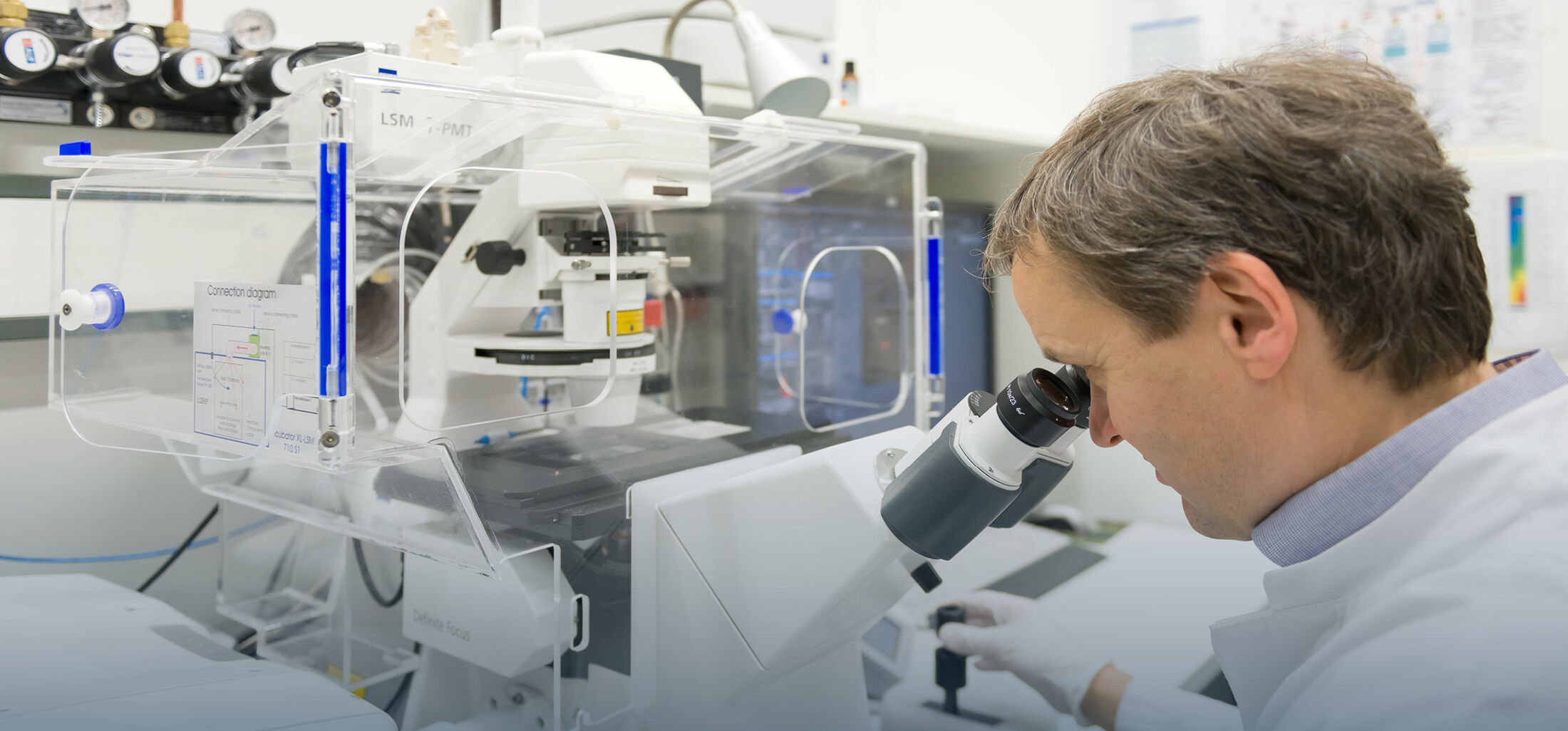Laboratory of mono(ADP-ribosyl)ation
Team (Laboratory of mono(ADP-ribosyl)ation)
Group leaders
Dr. rer. nat. Karla Feijs-Žaja
Tel.: 0241 80-37944
kfeijsukaachende
Dr. Roko Žaja
Tel.: 0241 80-37944
rzajaukaachende
Phd Students
Nonso Josephat Ikenga
Ganga Mohan
Victoria Ngangbam
Jonas Siefert
Undergraduate students
Contact us to do your MSc or BSc internship with us!
Technician
Gülcan Aydin
Alumni
Jochem Samson (2024)
Lisa Weixler (2024)
Lennart Lindner (2023)
Maria Backhaus (2023)
Dariia Plaksina (2023)
Timo Bolte (2022)
Petra Toneva (2020/2021)
Jeffrey Momoh (2020)
Katja Schäringer (2020)
Jessica Malcev (2019)
Thore Diefenbach (2019)
Sandro Cappelmann (2018)
Post-translational modifications of proteins can influence for example their localisation, stability and interactions. They are important throughout life, from early development to being deregulated in disease. Some are well studied, like phosphorylation or ubiquitination, others remain more obscure still. We are interested in the modification of proteins with ADP-ribose.
Of long unknown importance, slowly its functions are emerging, such as in innate immunity and metabolism. We are interested in both the enzymes that add ADP-ribose to proteins, the PARPs or ARTDs, and the enzymes that remove it, the macrodomain-containing hydrolases. By determining these enzymes’ function in in vitro and in vivo systems, we intend to further uncover the processes influenced by mono(ADP-ribosyl)ation. This will then enable us to decipher where ADP-ribosylation goes wrong in disease onset and progression.
Bonfiglio, J. J., Fontana, P., Zhang, Q., Colby, T., Gibbs-Seymour, I., Atanassov, I., Bartlett, E., Zaja, R., Ahel, I., and Matic, I. 2017 “Serine ADP-Ribosylation Depends on HPF1.” Molecular Cell 65, 932–940.
Vyas, S., Matic, I., Uchima, L., Rood, J., Zaja, R., Hay, R. T., Ahel, I., and Chang, P. 2014 “Family-wide analysis of poly(ADP-ribose) polymerase activity.,” Nature Communications 5, 4426.
Rosenthal, F.*, Feijs, K. L. H.*, Frugier, E., Bonalli, M., Forst, A. H., Imhof, R., Winkler, H. C., Caflisch, A., Hassa, P. O., Lüscher, B.*, and Hottiger, M. O.* 2013. Macrodomain-containing proteins are novel mono-ADP-ribosylhydrolases. Nature Structural and Molecular Biology 20, 502-507. *equal contribution
Feijs, K. L. H., Forst, A. H., Verheugd, P., and Lüscher, B. 2013. Macrodomain-containing proteins: regulating new intracellular functions of mono(ADP-ribosyl)ation. Nature Reviews Molecular Cell Biology 13, 443-451.
Feijs, K. L. H., Kleine, H., Braczynski, A., Forst, A. H., Herzog, N., Verheugd, P., Linzen U., Kremmer, E., and Lüscher, B. 2013. “ARTD10 substrate identification on protein microarrays: regulation of GSK3β by mono-ADP-ribosylation.” Cell Communication and Signaling 11, 5.
Weixler, L., Scharinger, K., Momoh, J., Lüscher, B., Feijs, K.L.* and Žaja, R.* (2021) ADP-ribosylation of RNA and DNA: from in vitro characterization to in vivo function. Nucleic Acids Res 2021, 49, 3634-3650.
Žaja, R*; Aydin G; Lippok, BE; Feederle, R; Lüscher, B; Feijs, KL*. A comparative analysis of MACROD1, MACROD2 and TARG1 expression, localisation and interactome. Sci Rep 2020, 10, 8286.
Feijs, KL*; Cooper, CD; Žaja, R. The controversial roles of mono(ADP-ribosyl)hydrolases MACROD1, MACROD2 and TARG1 in cancer. Cancers2020, 12.






